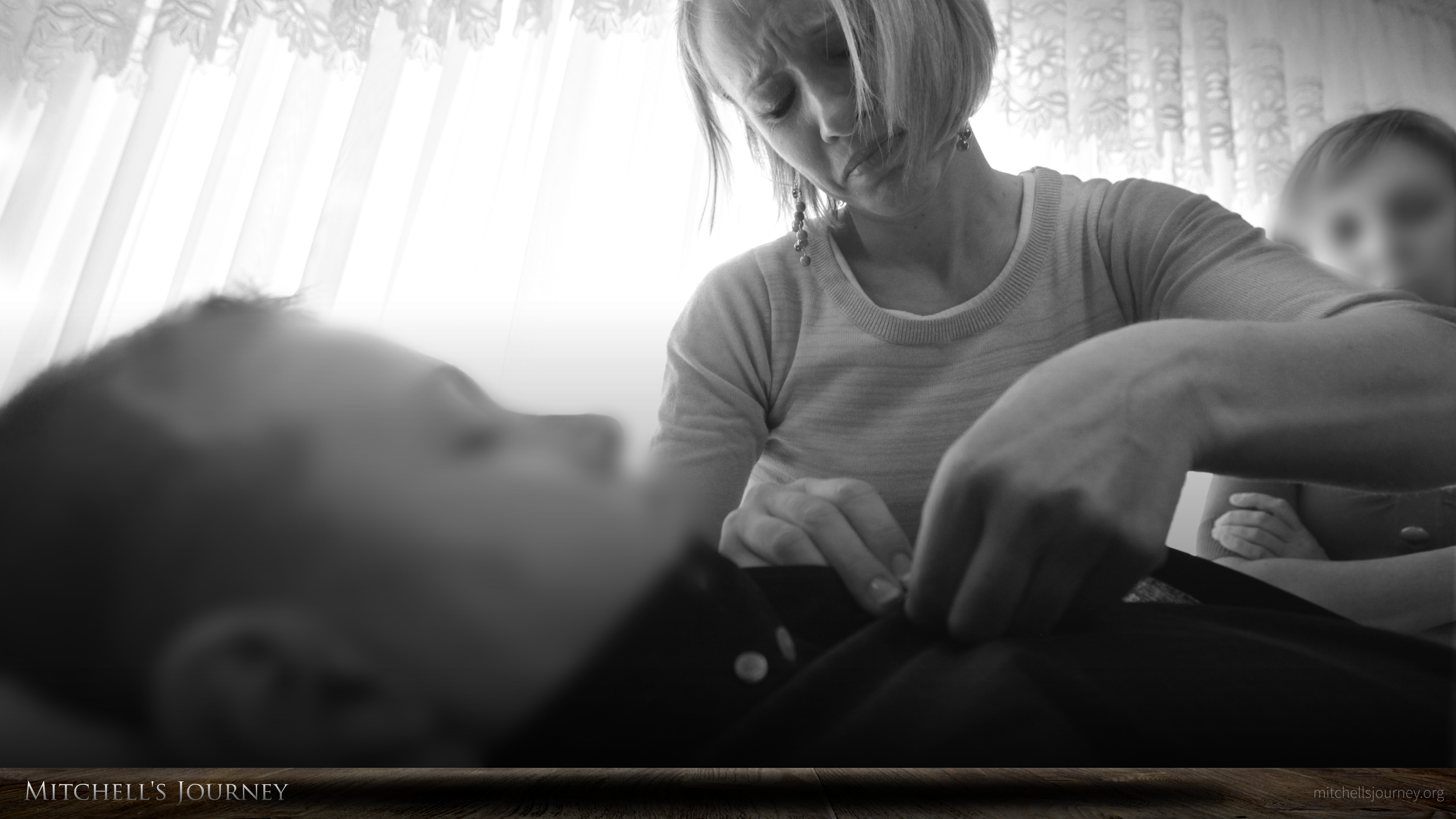Some moments in life burn an image into your mind with permanent ink – and some experiences are so hard to bear they change the shape of your soul. This was one such moment that broke and reshaped me in ways I'm still learning to understand.
My dear wife was dressing Mitch at the funeral home. Our mothers and oldest sisters were with us, each of whom played a unique and sacred role in Mitchell's life, and we wanted them to participate. Also, we were afraid of doing this alone.
Our once-little-baby had grown into a beautiful, funny, thoughtful, intelligent, and caring young boy. Yet, there he was, lying quietly on a table – motionless and frighteningly cold to the touch. My sweet wife, along with these other good women, reverently dressed Mitch in preparation for his funeral - where we would honor the good little boy that he was.
Natalie was doing okay until she got to the last button. Then, grief washed over her like a title wave, thrashing her about on the inside. This was the last button she would ever fasten for our son – and that broke her heart into infinite pieces of pain. I shattered, too.
I was a wreck that day. In fact, I was a wreck on the inside for many months afterward. Years actually, to learn how to put my broken pieces back together again. Even still, I carry a father's grief, and it is a terrible burden. Yet as much as I hurt on the inside, I know my wife hurts in ways I cannot imagine - for I am a simple man. She carried him, gave birth to him, and made sacrifices in ways only a mother can - and with that pain and sacrifice comes a unique fingerprint of love. A depth that is only earned by a mother's service and surrender. So, I consider her grief hallowed ground. I silence my own tears so that I might wipe hers and scoop up her shattered pieces for safekeeping. And when I can, I try to gather mine.
All too often, I hear people suggest "there is nothing like a mother's love" – in a manner that subordinates or dismisses the love of a father. In like manner, I hear less often the same of a father's love as being more than anything else. It's almost as if people claim one love is greater than the other. Nothing could be further yet closer to the truth at the same time. They are correct in saying there is nothing like a mother's love; in the same way, there is nothing like a father's love. Both are different; both are beautiful and uniquely sacred. But to suggest one is more significant or weightier than another ignores one immutable truth ... a mother and father are both parents and hurt deeply for the one they loved and lost. Maddeningly, some people are so focused on comparing grief they forget to simply honor it.
So, when I look at this photo, I set aside my sorrows and reverenced my wife's. I realized at this moment Natalie's pain was as unique to her as her relationship was with Mitch. Her love was beautiful, vast, and deep. Her grief was then and remains today hallowed ground.
I'll never forget this sacred, agonizing moment; under a canopy of soft light and even softer whispers, we were trembling at the last button.
It seems the hardest things in life are always the last thing: the final lap around the track – when your legs are about to collapse; the last conversation you will ever have with a loved one before they die; or just looking back on a squandered moment realizing, in retrospect, that was our last and wishing we were different.
Neal Maxwell, a man whose intellectual and spiritual insight I've long admired, once wrote, "We should certainly count our blessings, but we should also make our blessings count." I love that statement because it reminds me of the importance of putting our blessings to good use - otherwise, we are throwing our gifts away.
I've discovered that some of our most profound blessings are sometimes camouflaged in tragedy, pain, and despair – and they can remain forever hidden if we don't seek after them. And when we find that hidden treasure, we discover our torment has become our teacher.
This image, burned in my mind and heart, reminds me suffering is sacred.
Among the many blessings I've received in life, Mitch ranks among my sweetest and most sacred. To this day, when I button my own shirt, I remember Mitchell's last button. Sometimes I cry. But every single time, I vow to lift heavy hands and hearts and help soften the blow for others who face their last.


